For 45 years, this national resource has pioneered cutting-edge psychology research while providing support for thousands of vulnerable families annually.
Just as tending to seedlings and saplings brings forth sheltering canopies of soaring trees, the act of making decisions to promote health-physical, emotional, mental-can build strength, resilience, and well-being among children, families, and communities. When it comes to generational trauma, early interventions are essential to break the cycles of violence, abuse, neglect, and other stressors that can become entrenched in families.
"Our work focuses on strengthening family relationships and helping to interrupt cycles of maltreatment," says Jennie Noll, professor in the University of Rochester's Department of Psychology and the executive director of Mt. Hope Family Center. "We support children and collaborate with caregivers to better understand child development, effective communication, and non-violent conflict resolution."
Grounded in academic collaboration, rigorous training, and community partnerships, the University's Mt. Hope Family Center has helped families near and far make significant strides. Its preventative measures and accessible programs have made the greater Rochester community-and beyond-safer and stronger, says Noll.
As a testament to that reality, the center-located in the city's Corn Hill neighborhood just north of the University's River Campus and Medical Center-has received funding from Monroe County to broaden its local programming and amplify its impact in the region. This year, the center's current and legacy leadership also received the American Psychological Foundation Gold Medal Award for Impact in Psychology, for leveraging research toward the public good and training the next generation of psychologists.
Here are eight facts to know about the Mt. Hope Family Center, a conduit of positive change in the community since 1979-and one that continues to serves thousands of families annually.

1. Mt. Hope Family Center is one of only three nationally designated resource centers for child maltreatment in the United States.
In 2023, Mt. Hope Family Center received a multimillion-dollar grant renewal from the National Institutes of Health (NIH) for its TRANSFORM Center's national leadership. Established in 2018, TRANSFORM (Translational Research that Adapts New Science FOR Maltreatment) is a national resource center that conducts research, shares discoveries, and captures best practices to train professionals committed to preventing and addressing child abuse and neglect.
The NIH grant renewal for the TRANSFORM Center cements Mt. Hope Family Center as one of only three academic partnerships in the United States with this prestigious designation. As a national resource for child maltreatment research and training, the center now engages professionals and communities in all 50 states and 11 countries, sharing 40 years of research to raise awareness, improve responses and ultimately eliminate abuse and neglect.
2. The center is cross-disciplinary by design-combining resources from across the University of Rochester and the community.
Mt. Hope Family Center comprises a diverse team of more than 80 care providers, researchers, lawyers, and administrators working together to promote resilience among children and families affected by stressful or traumatic experiences. Clinical services, innovative research, and hands-on mentoring and training create a powerful investment in public health.
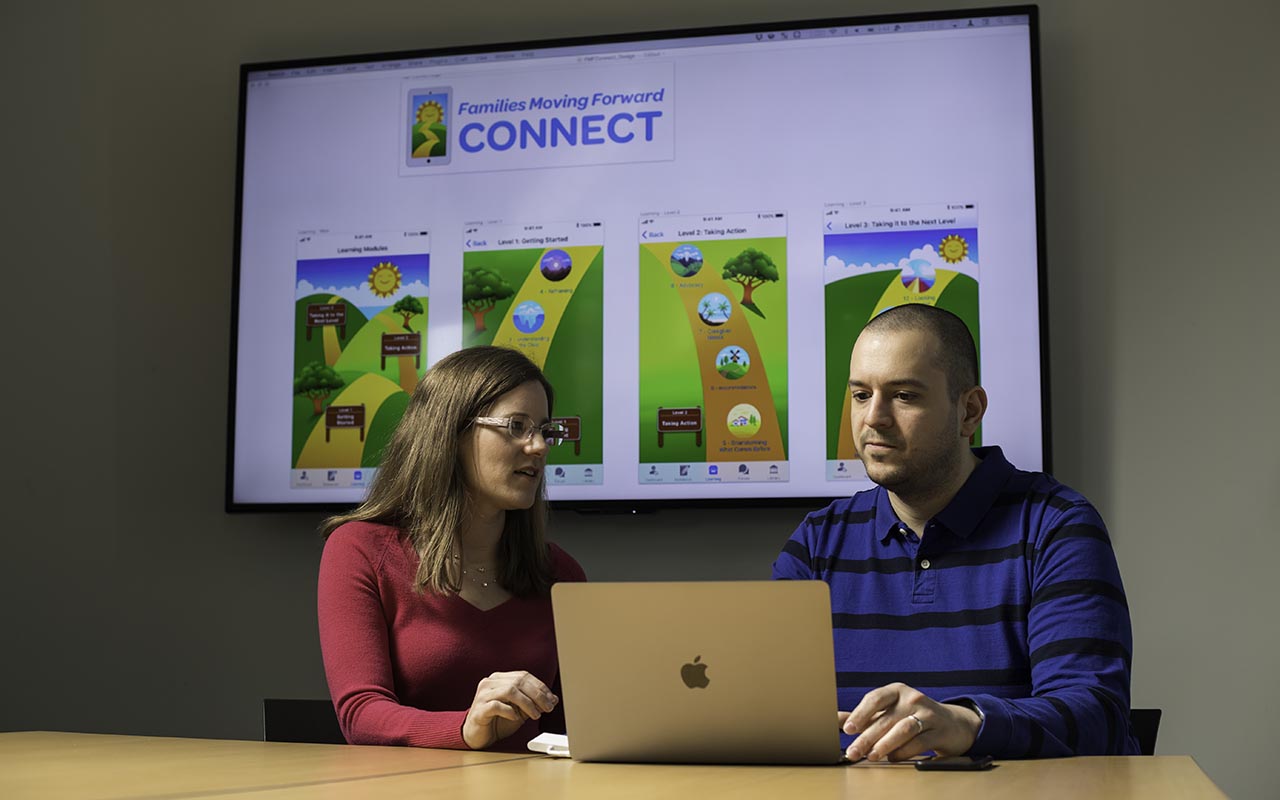
The NIH funding broadens this collaboration, supporting partnerships across University and Medical Center departments and community outreach centers. Researchers at Mt. Hope work alongside colleagues in the Department of Psychology, Susan B. Anthony Center, School of Nursing, as well as the Medical Center's departments of psychiatry, pediatrics, and obstetrics and gynecology. In addition, partnerships with the pediatric and behavioral health team provide diagnostic and clinical services to children with Fetal Alcohol Spectrum Disorders (FASD)-one of only two such sites in New York state.
Federal and local grants further the center's regional impact and national significance. At the federal level, the Department of Health and Human Services supports two programs at Mt. Hope Family Center with nearly $1 million per year over five years:
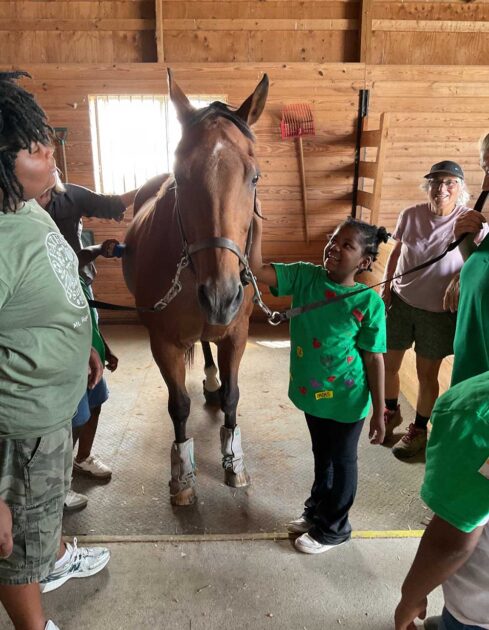
- STRONGER, which provides trauma-informed services to children and families in Greater Rochester
- Sustaining Change, which offers training and technical assistance to child- and family-serving organizations across the nation, with an emphasis on disseminating and sustaining evidence-based trauma treatment models
This year, a multi-year grant from Monroe County, awarded through the United Way of Greater Rochester and the Finger Lakes, will allow the center to expand its Building Healthy Children program to expectant mothers throughout Monroe County. "Mt. Hope Family Center is one of only a few agencies to receive a $1.7 million grant from Monroe County to expand our community-based programs, enhance family support services, and meet the rising demand for trauma-informed care in the Rochester area," says Noll.
In April, Noll and New York State Senator Jeremy Cooney coauthored an opinion piece to underscore the importance of funding initiatives against child maltreatment. Monroe County has struggled with jarring rates of child fatalities, they wrote. Averaged over 12 years from 2010 to 2022, children die of maltreatment-related causes at 4.1 times the national per-capita rate and twice the state's per-capita rate. "This amounts to roughly two children per month with over 60 percent of these cases involving children under the age of one," they write, adding that the majority of these fatalities "are preventable."
3. By systematically measuring effects over time, the center tracks not just individual progress, but also long-term trends across generations.
Federal support allows Mt. Hope to pursue its intergenerational research, following study participants into adulthood and parenthood. As a result, the researchers have a unique lens when it comes to examining how childhood abuse and neglect affect not only individuals' adult health but also their children's development.
Longitudinal research of this kind can directly inform new strategies and public policies to break cycles of maltreatment in families.
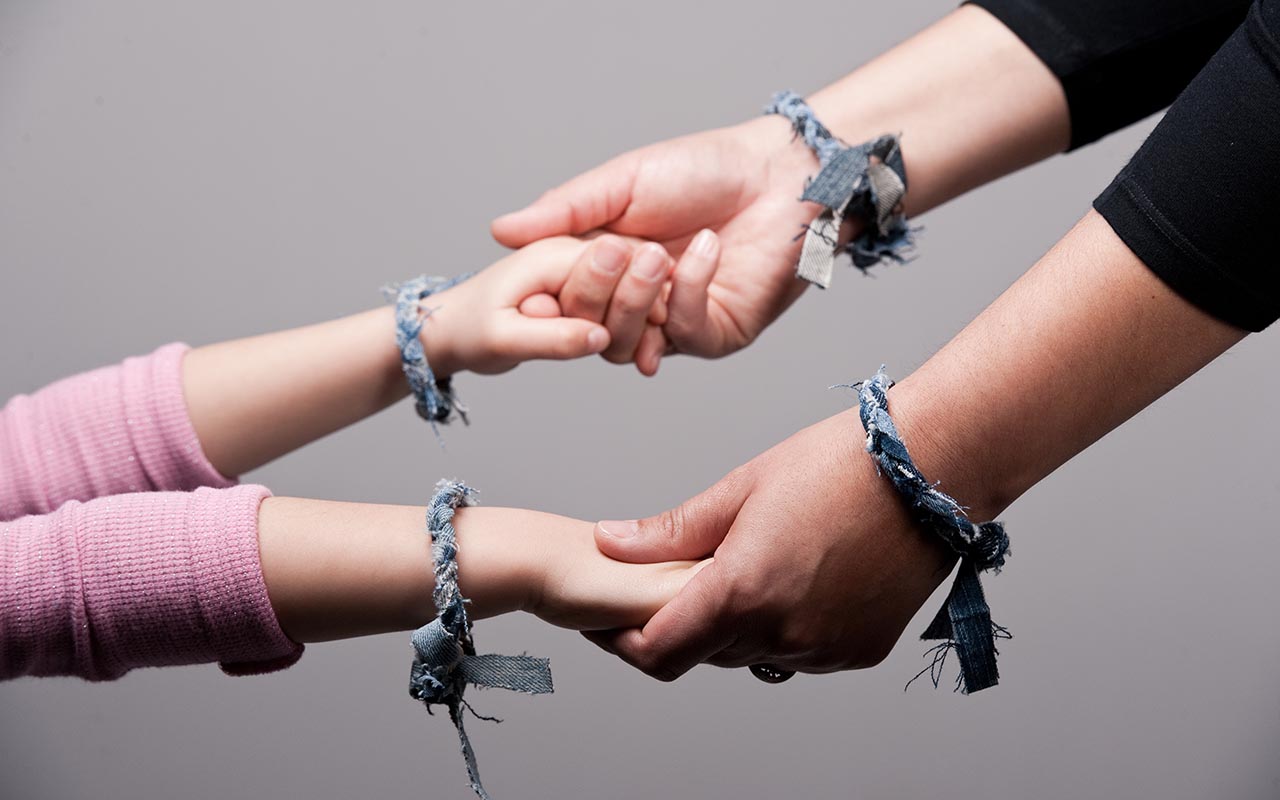
4. Trusted experts visit area families at home to offer hands-on support …
Programs like Mt. Hope's Building Healthy Children offer home-based support to young mothers and their children, focusing on positive parent-child relationships and healthy development to improve family resilience and long-term outcomes. With the new grant from Monroe County, this program can now be offered to every pregnant person within its borders. This key investment will reduce child abuse and neglect while also enhancing parenting skills, decreasing parental depression and stress, reducing stays in the neonatal intensive care unit (NICU) and the risk of Sudden Infant Death Syndrome (SIDS), and increasing child well visits and immunizations.
5. … and then extend their reach into nearby communities with evidence-based findings.
Rates of child sexual abuse can be drastically reduced, as a recent study from Mt. Hope Family Center recently showed. The counties in the study that received strategic education measures saw a 17 percent decrease in substantiated child sexual abuse cases, and a 34 percent drop in unsubstantiated sexual abuse cases, compared to a control group that didn't receive these measures.
"That translates to 110 fewer abused children, and substantial public cost savings," says Noll, the study's lead author.
6. The center and the University are advancing our understanding of the "ordinary magic" behind resilience across the lifespan.
Mt. Hope Family Center is collaborating with the new University of Rochester Resilience Research Center (UR³C), one of four transdisciplinary centers to receive multi-year funding from the University for collaborative research that addresses humanity's most complex challenges.
Resilience can be defined as the flexible capacity to adapt to adversity and recover in better-than-expected ways, according to Kathi Heffner, a professor of nursing, of medicine, and of psychiatry who co-leads the center with Noll. The partnership-which taps into the research and clinical expertise of faculty members from across the University, including those from biomedical genetics, counseling and human development, medicine, nursing, psychology, and public health sciences-will explore the mechanisms underpinning resilience. Given that anywhere from 20 to 40 percent of people with adverse child experiences lead healthy lives, researchers hope to untangle the mystery of different responses to early life stress to develop more effective treatments and interventions.
7. Mt. Hope Family Center shaped a work of theatre that integrates powerful data with equally compelling drama.
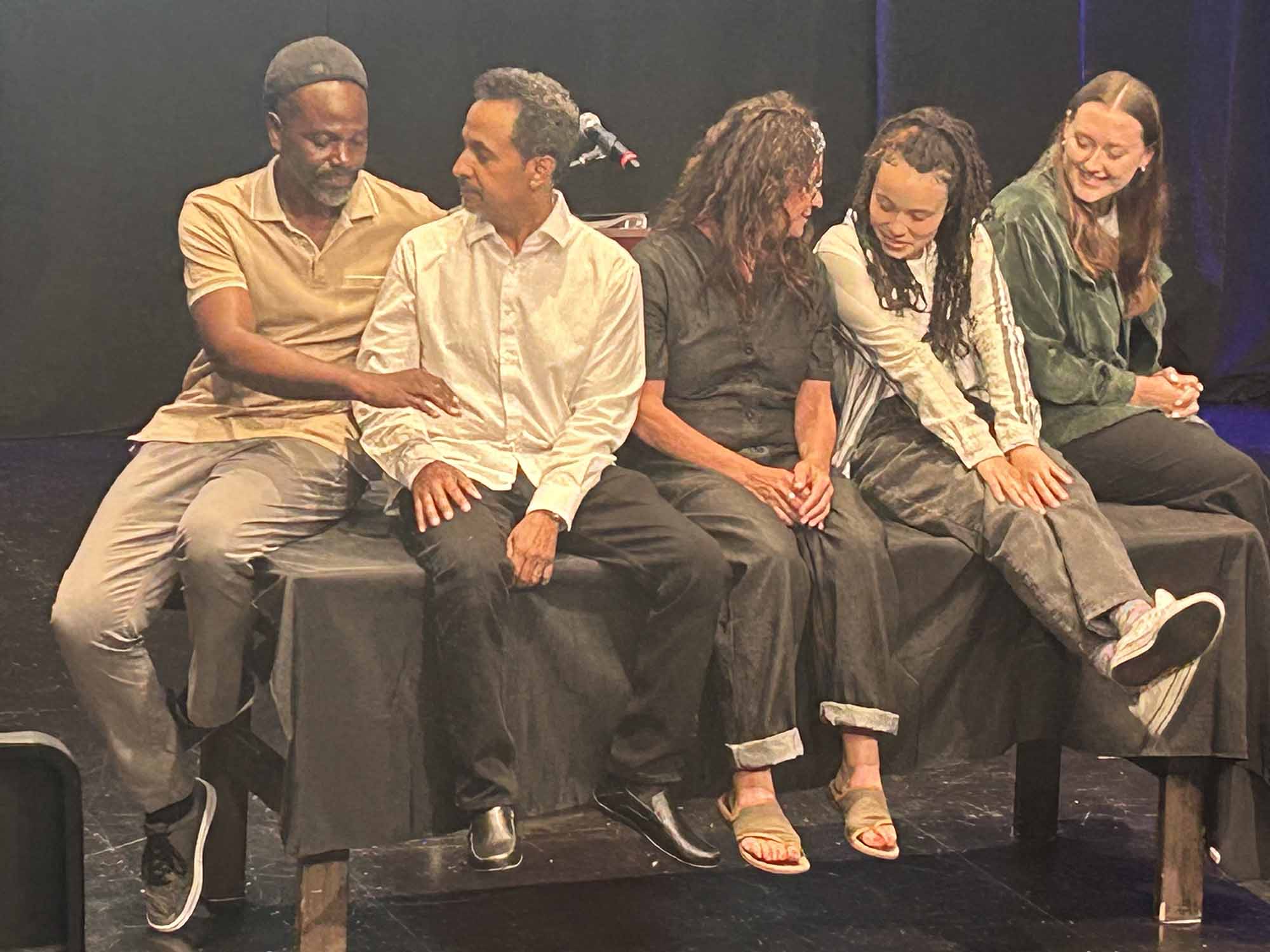
Stories unfolding on stage can elicit emotion, dialogue, and action about difficult topics that are easy to avoid. Five years ago, Houses on the Moon Theatre Company partnered with the TRANSFORM Center and Catherine Cerulli, professor emeritus in the Department of Psychiatry, to create a theatrical performance for high school students.
Gleaning data from Mt. Hope Family Center, the Childhelp National Child Abuse Hotline, and comprehensive youth surveys, the play Celebratio Vitae explores themes of resilience in the face of child maltreatment, abuse, neglect and exploitation. Cerulli describes the initiative as "truly translational science," highlighting the integration of research from Mt. Hope Family Center into the art of stagecraft through five affecting narratives. This fall, Houses on the Moon will present the production to six schools across the country, rolling out toolkits for other schools to mount the production and share critical resources.
8. Mt. Hope Family Center is widely recognized as the birthplace of developmental psychopathology.
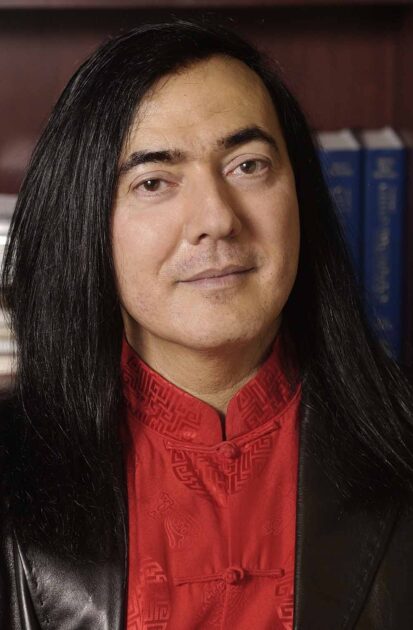
Mt. Hope Family Center is globally renowned for launching the interdisciplinary subfield of psychology known as developmental psychopathology, which changed the paradigm of how researchers think about scientific discovery related to child development. With its 2025 Gold Medal Impact Award, the American Psychological Foundation recognized Noll, psychology professor Sheree Toth, and Dante Cicchetti, founder of Mt. Hope Family Center, for founding and maintaining this subfield.
In other words, the University of Rochester was one of the first places to show that behavioral interventions can reverse the impact of child abuse and neglect while preventing health deficits associated with early life trauma and adversity.
Upon joining the faculty of the University of Rochester in 1984, Cicchetti began to frame this approach as an integration of developmental psychology and clinical research, anchoring the subfield through research and founding the journal Development and Psychopathology in 1989.
"To see the positive, and not just the problems, is crucial when studying the development and resilience of maltreated children," Cicchetti, who served as the center's director for two decades, has said.
Today, evidence-based programs influenced by Mt. Hope Family Center are now available in all 50 states-and in 21 countries. These includes trainings and toolkits for obstetricians, pediatricians, gynecologists, law enforcement, and educators. By collaborating with local agencies, schools, and health providers, the center ensures its research translates into impact with reach far beyond its footprint.






